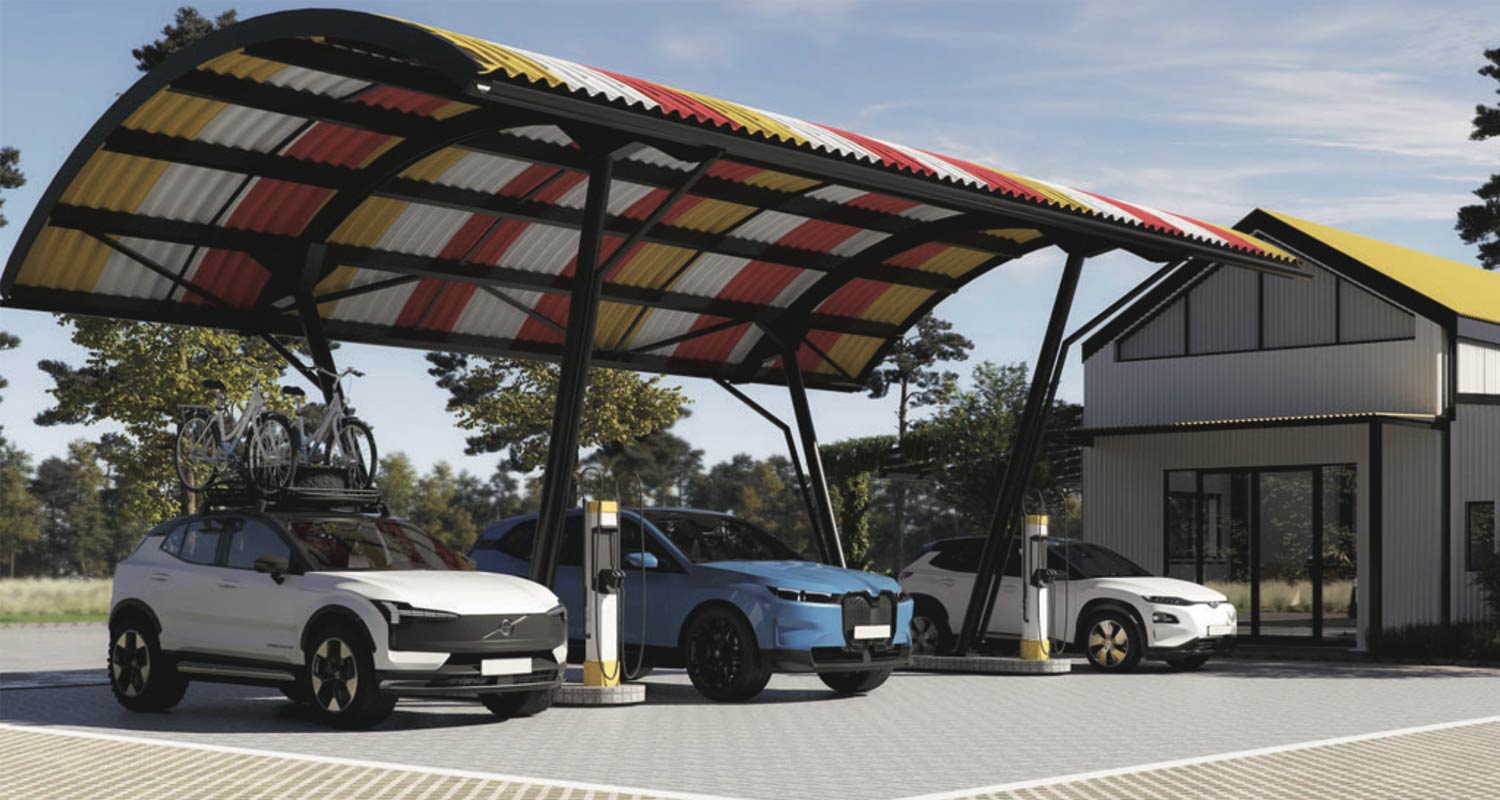 Zero Carbon Charge (Zero CC) has begun work on a network of solar-powered electric vehicle charging stations that will span South Africa’s national routes.
Zero Carbon Charge (Zero CC) has begun work on a network of solar-powered electric vehicle charging stations that will span South Africa’s national routes.
The network, which is designed to encourage and support the growth of the EV industry in the country, will feature completely off-grid charging stations, reducing strain on the country’s energy generation resources and reducing carbon emissions.
According to Zero CC co-founder Joubert Roux, the company has awarded the contract for the construction of its first facility – which comprises a 1MW solar farm and equivalent storage capacity – in Wolmaransstad in the North West province, about halfway between Johannesburg and Kimberley. The site is expected to be operational by July.
“Two things need to be present in the market for EV adoption rates to reach a tipping point,” Roux said in an interview with TechCentral. “The first is sub-R500 000 EVs, and the second is a reliable national charging network. Before they buy an EV, people want to know that they can take their EV out and go anywhere they want without getting stranded.”
Zero CC is planning to build two types of charging station: 1MW stations are intended for passenger and commercial vehicles up to 8t, while larger, 35MW sites are intended for electric trucks. Roux said that six such sites are planned along the N3 between Johannesburg and Durban – the busiest trucking route in the country – with 120 planned along other national routes. Read the company’s slide deck (PDF).
The total estimated cost for the charging network is R1.8-billion, which Zero CC plans to finance privately.
R1.8-billion funding
“The company is well under way in raising the R1.8-billion to be invested into South African EV charging infrastructure. While the exact figures are confidential, we remain on track to achieve our goal of constructing 120 electric passenger vehicle charging stations across the country by September 2025,” Roux told TechCentral.
“The average range of an EV is about 300km, so we will have stations at 150km intervals across the country,” he said. Both charging station types will have 480kW supercharging capabilities via 200A and 500A DC cables. The 200A cables are air cooled, while the 500A cables are liquid cooled, which makes it possible for these higher capacity cables to be smaller, lighter and more manageable than they would otherwise need to be.
Read: All the plug-in hybrids for sale in South Africa
According to Roux, the sites designed for passenger vehicles require about 2.5 acres of land, most of which is for solar panels. The larger sites, for trucks, require at least 150 acres, as many more solar panels are needed. Space is also required for overnight parking areas, ablution facilities and brake-and-tyre services. Sites will be modified to add additional generation, storage and charging capacity as usage data becomes available.
Motorists will interact with Zero CC ecosystem via an app that will help them plan trips and facilitate payments. Roux said the company has opted to use a post-paid system to avoid scenarios where clients have paid and something interrupts the charging process. Card payments facilities will also be available.

One of the challenges that customers in more mature EV markets like the US struggle with is determining if an EV charging station supports their charging port, and if so, whether the power output is suitable for their vehicle. Zero CC’s connectors adhere to the combined charging system standard, which caters for both type-1 and type-2 charging ports. Its software conforms to the open charge point protocol, a standard which facilitates communication between charging stations and EV battery management software, regardless of the vehicle manufacturer. Use of this standard helps the charging station and vehicle communicate, and decide on the optimal charging rate without the user having to worry about it.
Although the prospect of a nationwide EV charging network based on renewable energy may sound enticing, there are significant challenges in rolling out and managing such infrastructure. Security is a big one, especially since syndicates targeting battery storage sites have intensified their efforts in the last few years, a problem with which the telecommunications sector is struggling.
“Our batteries are purpose-built so that they are virtually useless once they have been removed,” said Roux. “We will also have cameras and sensors around the sites, and have partnered with security companies and community groups for physical presence.”
Another challenge slowing the progress of renewable energy deployments has to do with the interaction between national and local governments when it comes to permitting procedures. Zero CC estimates that a total of 7 500 acres of land is needed.
The company typically signs long-term rental contracts with landowners, who receive 5% of the revenues generated from the sites. The company must perform environmental impact studies as part of its permitting requirements, but acquiring the permits is sometimes challenging in instances where the chosen erf is classified as high-value agricultural land.
“We have over 40 applications that are now stuck – Sanral will not comment, and the department of transport won’t [act as facilitator]. Municipalities want to go ahead, but they also don’t want to be seen to be going over national government,” said Roux.
Read: 76% of Africa’s energy needs could come from renewables by 2040
A third challenge is the seasonal variation in daylight hours and solar irradiation. According to Roux, estimates suggest that Zero CC will have an 87% year-round security of supply and will offset the shortfall using on-site, biofuel-based backup generators. — (c) 2024 NewsCentral Media

